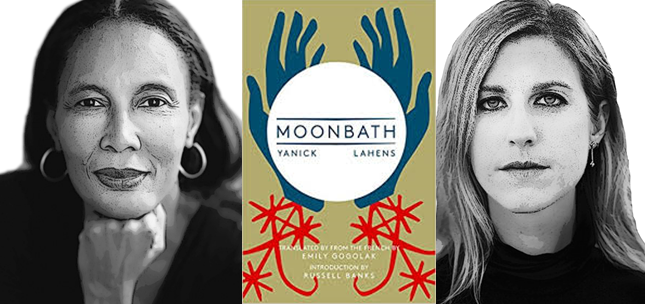

Translated from the French by Emily Gogolak.
This is part of our special feature The Gender of Power.
The elusive gazes of the men, the slightly aghast looks from the women, upon the arrival of this rider, all to suggest that he was a dreadful and dreaded being. And it’s true that we all dreaded Tertulien Mésidor.
Tertulien Mésidor loved to pass through all of the villages, even the most distant, to test his power. To measure the courage of men. To weigh the virtue of women. And to check the innocence of children.
He had emerged from the candy colored curtains of the devant jour. At that hour when, behind the mountains, a bright pink rips through shreds of clouds to run flat out over the countryside. Sitting on his ash gray horse, he was dressed as usual in a stately straw hat, the wide brim turned down over two bulging eyes. A cutlass hung from his belt and following his lead were two other riders, who advanced with the same slow and resolute steps as their master.
Tertulien Mésidor went towards the fish stall that reeked of offal and decomposing flesh. At his approach, we started talking very loudly. Much louder than usual, vaunting the variety of fish, the quality of the vegetables and provisions, but without taking our eyes off the rider. The more we watched him the louder we spoke. Our racket on this dawn was nothing but a mask, another, for our acute awareness. When his horse reared, the procession froze. Tertulien Mésidor bent down to whisper into the horse’s ear and to caress its mane. “Otan, Otan,” he murmured softly. The animal stomped in place and shook its tail. The man with the wide-brimmed hat wanted to go ahead on the rocky path between the stalls. With a gesture of authority, he hit the flanks of the horse with his heels and, squeezing the bridle, forced the animal to trot in that direction.
He had hardly advanced a few meters when he took the reins to stop himself again. The movement was so abrupt that the two other riders had a hard time holding back their horses, who were also stomping now. Tertulien Mésidor had just glimpsed, sitting among all the women, Olmène Dorival, the daughter of Orvil Clémestal, whose smile split the day in two like the sun and who, without realizing it, had twisted the bottom of her skirt and slid it between her thighs. Two eyes were already undressing her and she didn’t have the slightest suspicion of it.
By the light trembling of his nostrils, the two other riders knew what to expect. Tertulien Mésidor kept his eyes fixed for a few seconds on this band of fabric that hid Olmène Dorival’s spring and flower. It took his breath away. For a few seconds. Just a few seconds. But long enough to lose himself. Captive to a magic spell with no explanation.
Tertulien Mésidor’s desire for Olmène Dorival was immediate and brutal, and it sparked within him a longing for entangled legs, furtive fingers, hips taken right between his palms, the scent of ferns and wet grass.
Tertulien Mésidor must have been fifty-five. Olmène Dorival was barely sixteen.
He owned three quarters of the lands on the other side of the mountains. He was a don.* A great don.
More often than not she went barefoot and the only shoes she had ever worn were hewn from rough leather.
He had made several trips to Port-au-Prince, and had even traveled beyond the seas and danced the son* with the mulattoes of Havana.
She had only left the limits of Anse Bleue to accompany her mother to the fish market in Ti Pistache, which smelled of rot and offal and where flies danced wild sarabandes. Or, recently, a little further away, to the big market in Baudelet.
Unverifiable legends and tenacious truths hatched under the name of Tertulien. They said that he had stolen, killed. That he’d had as many women as there were in our village of peasant women and fishermen. And many other things…
In the monotony of very ordinary days, Olmène Dorival only escaped by the graces of the gods, who sometimes straddled her in dreams, tempers, colors, and words.
Yanick Lahens was born in Port-au-Prince in 1953 and is one of Haiti’s most prominent authors. She published her first novel in 2000, was awarded the prestigious Prix Femina in 2014 for Moonbath, and is the 2016 winner of a French Voices Award.
Emily Gogolak is writer focusing mostly on migration based in New York, but frequently working in Latin America and on the U.S./Mexico border. From 2014 to 2016, she was an editorial staffer at The New Yorker. A graduate of Brown University, she is also a literary translator. Her translation of Moonbath won a 2016 French Voices Prize.
This excerpt from Moonbath is published by permission of Deep Vellum Publishing. Copyright © Sabine Wespieser éditeur, 2014. Originally published as Bain de Lune in 2014.
This work received the French Voices Award for excellence in publication and translation. French Voices is a program created and funded by the French Embassy in the United States and FACE (French American Cultural Exchange).
Photo: Yanick Lahens, Private
Photo: Emily Gogolak, Private
Published on July 6, 2017.




